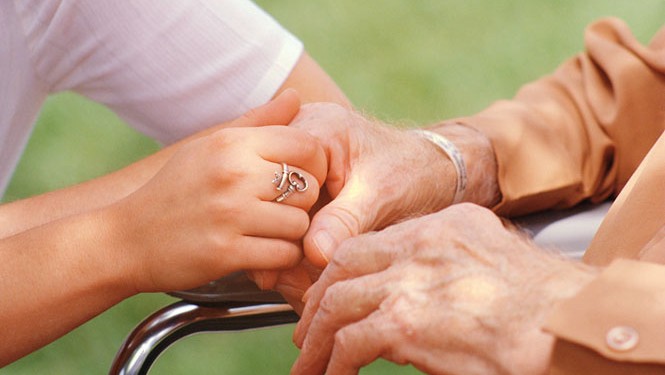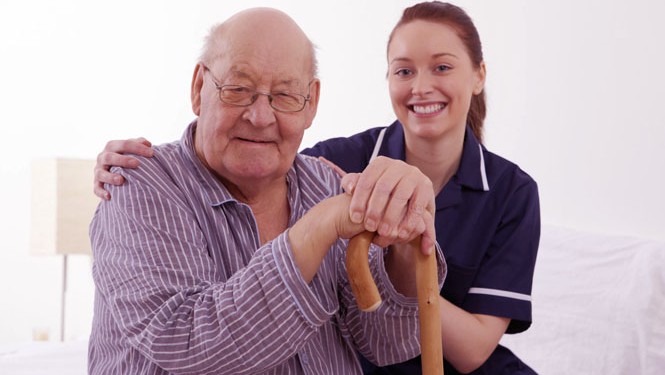As a caregiver, taking care of someone with Alzheimer’s disease requires time and energy. It can be a demanding and stressful task for a caregiver. Knowing and recognizing the signs of stress in yourself or another caregiver you care about is the first step towards taking action.
If the following symptoms occur on a regular basis, call your doctor or contact your local Alzheimer Society for help.
- Denial…about the disease and its effect on the person with the disease.?”Everyone is overreacting. I know Mom will? get better.”
- Anger…at the person with Alzheimer’s disease, themselves and others. ?”If he asks me that question once more I will scream!”
- Withdrawing socially…you no longer want to stay in touch with friends or participate in activities you once enjoyed.?”I don’t care about getting together with friends anymore.”
- Anxiety…about facing another day and what the future holds.?”I’m worried about what will happen when I can no longer provide care.”
- Depression…you feel sad and hopeless much of the time.?”I don’t care anymore. What is wrong with me.”
- Exhaustion…you barely have the energy to complete your daily tasks.?”I don’t have the energy to do anything anymore.”
- Sleeplessness…you wake up in the middle of the night or have nightmares and stressful dreams.?”I rarely sleep through the night, and don’t feel?refreshed in the morning.”
- Emotional reactions…you cry at minor upsets; you are often irritable.?”I cried when there was no milk for my coffee this morning. Then I yelled at my son.”
- Lack of concentration…you have trouble focusing and you find it difficult completing complex tasks.?”I used to do the daily crossword. Now I am lucky if I can solve half of it.”
- Health problems…you may lose or gain weight, get sick more often (colds, flu), or develop chronic health problems (backaches, high blood pressure).?”Since the spring, I have had either a cold or the flu. I just can’t seem to shake them.”
10 ways to reduce caregiver stress
As a caregiver, you need to take care of yourself. You are the most important person in the life of someone with Alzheimer’s disease. There are things you can do to help maintain your health and well-being. If you, as the caregiver, collapse or cannot caregive then everything changes and can fall apart rapidly. Caregiving is not about sacrificing yourself to the point where you are burnt out.
- The caregiver should learn about the disease.?
- Knowing as much as you can about the disease and care strategies will prepare you for the Alzheimer journey. Understanding how the disease affects the person will help you comprehend and adapt to the changes.
- The caregiver should be realistic…about the disease. ?
- It is important, though difficult, to be realistic about the disease and how it will affect the person over time. Once you are realistic, it will be easier for you to adjust your expectations.
- The caregiver should be realistic about themselves.
- You need to be realistic about how much you can do. What do you value most? A walk with the person you are caring for, time by yourself, or a tidy house? There is no “right” answer; only you know what matters most to you and how much you can do.
- The caregiver should accept his or her feelings. ?
- When caring for a person with Alzheimer’s disease, you will have many mixed feelings. In a single day, you may feel contented, angry, guilty, happy, sad, embarrassed, afraid and helpless. These feelings may be confusing. But they are normal. Recognize that you are doing the best you can.
- The caregiver should share information and feelings with others.
- Sharing information about the disease with family and friends will help them understand what is happening and better prepare them to provide the help and support you need. It is also important to share your feelings. Find someone with whom you feel comfortable talking about your feelings. This may be a close friend or family member, someone you met at an Alzheimer support group, a member of your religious community, or a health-care professional.
- The caregiver should maintain a positive mental attitude.
- Your attitude can make a difference to the way you feel. Try to look at the positive side of things. Focusing on what the person can do, as opposed to the abilities lost, can make things easier. Try to make every day count. There can still be times that are special and rewarding.
- The caregiver should look for humour.
- Alzheimer’s disease is serious, you may find certain situations have a bright side. Maintaining a sense of humour can be a good coping strategy.
- It is essential that the caregiver take care of themselves.?
- Your health is important. Do not ignore it. Eat proper meals and exercise regularly. Find ways to relax and try to get the rest you need. Make regular appointments with your doctor for checkups. You also need to take regular breaks from caregiving. Do not wait until you are too exhausted to plan this. Take time to maintain interests and hobbies. Keep in touch with friends and family so you will not feel lonely and isolated. These things will give you strength to continue providing care.
- The caregiver should get help and support.
- You will need the support that comes from sharing thoughts and feelings with others. This could be individually, with a professional or as part of an Alzheimer support group. Choose the form of support with which you are most comfortable.?Practical help: It can be hard to ask for and accept help. But asking for help is not a sign of inadequate caregiving. You cannot care for a person with Alzheimer’s disease alone. Ask family and friends for help. Most people will be willing to assist you. There may also be programs in your community that offer assistance with household chores or caregiving tasks. Your local Alzheimer Society can help you access these.
- Plan for the future?
Planning for the future can help relieve stress. While the person with Alzheimer’s disease is still capable, review his or her financial situation and plan accordingly. Choices relating to future health and personal care decisions should be considered and recorded. Legal and estate planning should also be discussed. As well, think about an alternate caregiving plan in the event that you are unable to provide care in the future.


